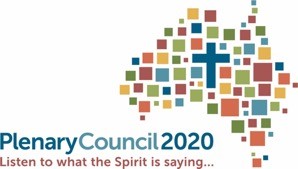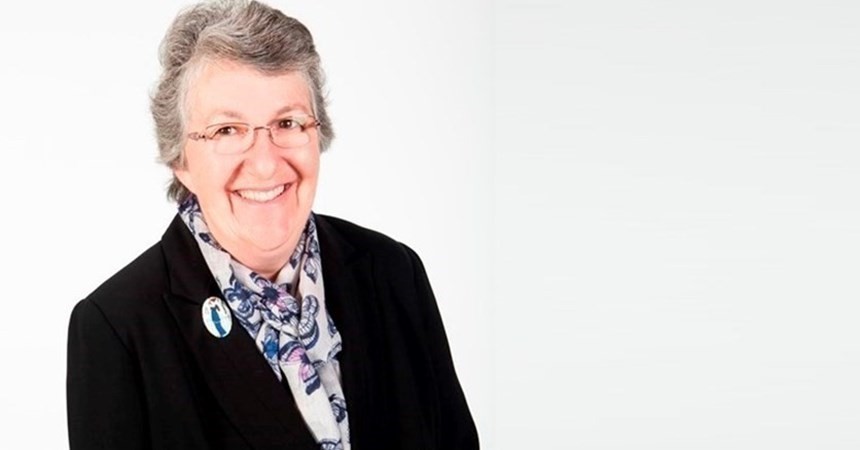The following prayer was prayed by our diocese on that day:
 Lord our God,
Lord our God,
in the Blessed Virgin Mary, Mother of Perpetual Help,
Patron of the Church of Maitland-Newcastle;
You have shown us a disciple who is faithful to your Word.
Open our hearts to receive your saving word,
so that, by the power of your Holy Spirit,
it may direct our daily living to bring forth a rich harvest of holiness.
We pray through our Lord Jesus Christ, your Son,
Who lives and reigns with you, in the unity of the Holy Spirit, One God, forever and ever. Amen.
This brings me to break open with you the third of the six Plenary Council themes. This week we turn to the theme:
How is God calling us to be a Christ-centred Church in Australia that is prayerful and Eucharistic?
The document, which has been prepared to break open this theme, uses the following quote from Luke 24:30-31
When they were at table, Jesus took bread, said the blessing, broke it and gave it to them. Their eyes were opened and they recognised him.
As we move into this second stage of the Plenary Council journey, we continue to seek the wisdom of the Holy Spirit. Beginning in July 2019, we are invited to reflect on Scripture, Church teaching and our contemporary situation in order to discern the answer to this question: How is God calling us to be a Christ-centred Church that is prayerful and Eucharistic? The fruits of what is discerned during this time will help shape the agenda of the first session of Plenary Council in October 2020.
This National Theme for Discernment is inspired by the voices of the People of God who shared how deeply they treasured the Eucharist and the sacramental and liturgical life of the Church. There was a call for stronger and more engaging preaching, with an emphasis on the Word of God and connection to daily life, some seeking a uniquely Australian expression of prayer and Eucharistic celebration, drawing from the wisdom and rituals of the Aboriginal and Torres Strait Islander people and also bringing together the many migrant communities which make up the Church in Australia. There were many divergent expressions of ways in which people and communities encounter God through their experiences of prayer, music and liturgy, and a desire for catechesis, training and formation for those in ministries related to these.
People talked about:
- Authentic faith teaching in Catholic schools
- Better attention to all aspects of liturgy
- Better communication of what the Church does
- Better faith formation
- Better formation for liturgical ministries and sacramental programs
- Better homilies
- Charismatic spirituality
- Church to act as a guide for Australian society
- Contemplative spirituality
- Cultural Masses
- Eucharistic adoration
- Greater attention to music in the liturgy
- Greater emphasis on prayer and Sacraments
- Greater focus on Jesus Christ
- Greater focus on the Word of God
- Greater involvement of the laity
- Greater leadership from Bishops
- Greater leadership from priests
- Greater support for RCIA
- Greater trust, faith and hope in God
- Importance of Communion services in rural parishes
- Keep the commandments
- Keep the faith
- Listen to the Holy Spirit
- Mass to be appealing to youth and children
- New translation of the Mass (inclusive language)
- Pray the Rosary
- Remain faithful to Church teaching
- Remain faithful to Church teaching on marriage
- Renewed call to holiness
- Return to traditional Latin Mass
- Return to traditional pre-Vatican II ways

I recall studying my Masters of Theology, at Brisbane College of Theology at Banyo in the nineties, when challenged by fellow students in my classes as to why I was studying theology, and why I remained a Catholic, if I could not be ordained and lead a community. Part of their struggle came from my desire to do well in my studies. The Brisbane College of Theology was an Ecumenical College with students and lecturers from the Anglican, Catholic and Uniting Churches. At the time, I needed to pause and think, so I could provide them with a response that was from my core. They would have detected a less than genuine response. As I pondered my ‘why’ I came to realise that Eucharist, the sacraments and the liturgical life of our faith/church were significant and important to me. As I read the list above, it seems that this is also important to those who participated in the Listening and Dialogue process in preparation for the Plenary Council.
I am always moved, during the ritual of Consecration, when the celebrant lays his hands over the gifts, invoking the Spirit (epiclesis) and then shortly after prays the words:
 On the day before he was to suffer, on the night of the Last Supper, he took bread and said the blessing, broke the bread and gave it to his disciples, saying:
On the day before he was to suffer, on the night of the Last Supper, he took bread and said the blessing, broke the bread and gave it to his disciples, saying:
TAKE THIS, ALL OF YOU, AND EAT OF IT, FOR THIS IS MY BODY, WHICH WILL BE GIVEN UP FOR YOU.
In a similar way, when supper was ended, he took the chalice, gave you thanks and gave the chalice to his disciples, saying:
TAKE THIS, ALL OF YOU, AND DRINK FROM IT, FOR THIS IS THE CHALICE OF MY BLOOD, THE BLOOD OF THE NEW AND ETERNAL COVENANT, WHICH WILL BE POURED OUT FOR YOU AND FOR MANY FOR THE FORGIVENESS OF SINS. DO THIS IN MEMORY OF ME.
It is at this time that we are broken, offered up, taken, given up, poured out, and forgiven, and for these we give thanks. We are God’s body and blood in the now, blest, broken-open and sent forth for the whole of creation.
The Preface of Eucharistic Prayer for Various Needs IV (Jesus, who went about doing good) and the words prayed after the Consecration provide us with the purpose of a life that is prayerful and Eucharistic.
From the Preface:
…For you have given us Jesus Christ, your Son,
as our Lord and Redeemer.
He always showed compassion
for children and for the poor,
for the sick and for sinners,
and he became a neighbour
to the oppressed and the afflicted.
By word and deed he announced to the world
that you are our Father
and that you care for all your sons and daughters...
And from the Eucharistic Prayer
...Open our eyes
to the needs of our brothers and sisters;
inspire in us words and actions
to comfort those who labour and are burdened.
Make us serve them truly,
after the example of Christ and at his command.
And may your Church stand as a living witness
to truth and freedom,
to peace and justice,
that all people may be raised up to a new hope...
Our eyes are opened and we become what we eat, what we hear and what we say.
Once again, I invite you to reflect and pray with the third theme as we prepare to break open each of the themes through Listening and Discernment.
How is God calling us to be a Christ-centred Church in Australia that is prayerful and Eucharistic?

